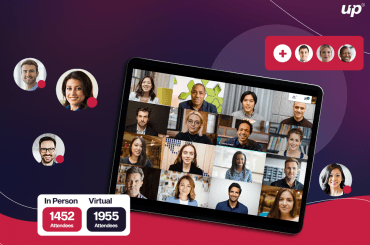Microsoft is placing itself on some elevated objectives for its latest Chromium-based Edge browser. Since Chuck Friedman, the company’s vice president for Edge informed, he wishes Edge to strike one billion users — a figure that will begin to competitor Chrome’s numbers. Initial, though, Friedman’s squad has to get edition 1.0 of Edge out to audiences in January.
It’s not a mystery that Microsoft left to Chromium out of a small piece of extreme anxiety. Undeniably, Friedman, who connected the team around two years ago, known it an “existential crisis,” carried about by queries about why consumers would even desire to make use of the old Edge.
“When I got brought in, we almost had this existential crisis of, okay, what do we want to do? There was sort of this moment of like, why Edge? Why would users choose that? Were we delivering on meaningful problems?” When he didn’t actually have a reply to those queries, thus the group reverses to the fundamentals to find out what price Microsoft particularly could offer in the browser gap — and if there was even a job for Edge going ahead.
Also Read: Twitter May Fundamentally Modify How Retweets & Mentions Work
Friedman quarrels that there’s an abundance of employment left to perform in the browser space. He said, “There’s an emerging new set of problems that felt like they had legs.” “And then it wasn’t about solving the problems of the last five years; it was about solving the problems of the next five.” To carry out so, the team had to shift history the original Edge’s problems with compatibility — while still admitting that at least in the work surroundings, the browser yet had to support the legacy web.
Undoubtedly, privacy is quite essential for everyone in the web browser commerce, Microsoft incorporated. Friedman that while users were ordinarily conscious about the privacy problems that come with accessing the web, they did not have the utilities to guard themselves. Friedman said, “We sort of reached this point where we recognize the promise of the web, open access to the entire world’s information, feels great, but the price of all of your information as part of that body wasn’t OK.”
And hence, too, turned a center for the team; however, looking at the entire problems together — united with an extra emphasis on security — the Edge squad then appeared how all of this suits in with the complete Microsoft suite. “It’s not just about the operating system. It’s not just about search. But it’s actually about the full M365, the combination of the operating system, plus security, plus the productivity tools.”

Nevertheless, Friedman also said, “The user should know where their data is, and they don’t know what the data is and how it’s being used.” Thus, users ought to have the aptitude to understand how their information is being utilized and have regulated it.
“There are those in our industry that think we absolutely should go to a point of extreme privacy and control. And I think there is a small set of users who prefer that. I also think that there’s a certain element of that that breaks the web. And I think that it has the potential to undermine the ability for publications to be able to monetize in a way that is reasonable.” Moreover, he argues that for customers, about half favor targeted ads against non-targeted ads; however, what makes them bumpy is to not have regulated it.
Microsoft, in its browser, defaults to blocking intermediary cookies. To execute so, it makes use of a similar whitelist as Mozilla. However, it even frequently updates this catalog when a website can show that it offers users the aptitude to erase their data — and hopes to persuade a huge variety of players in the marketing industry to provide users with these controls.
Edge, though, is also quite a tool for trade users, and so the group also began searching how it could perk up the complete efficiency for these users and consumers.
However, the team even found that users frequently copy & paste substance from Edge to Office products. Thus, expects the corporation to do extra in this region going forward. “We do a better job of integrating around collaboration with Microsoft Office properties who all have great web experiences. But, frankly, we need to meet them partway and help them do more. I’m excited for an opportunity of almost a re-launch of the Office web properties with the browser. There’s more innovative work we can do there.”
For more skilled users, Microsoft is undoubtedly setting up Edge as a choice for Chrome. The team is attempting to offer them a comparatively friction-less path to switch. Searching that balance is difficult, but Friedman believes it’s feasible, in part, thanks to his effort on Windows.
“My last gig was working on Win 10. I ran the product team for the core user experience for Windows 10. Sort of inherited the Windows 7 and 8 codebase and said: Okay, how do we bring those users together in a way that ends up making both of them feel good about the product. It was a similarly interesting challenge, where you have […] to have true empathy for users that come from a lot of different spaces.”












